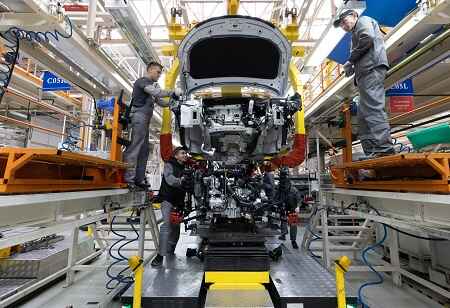 Magazine
Magazine

Tsuyo Manufacturing has signed a Letter of Intent (LOI) with the Government of Karnataka to establish a cutting-edge EV powertrain manufacturing facility along with a large, dedicated testing track for commercial vehicles in Dharwad.
The agreement, inked at the Bengaluru Tech Summit 2025, marks a significant step for the company’s role in India’s EV sector.
This facility will focus on producing a comprehensive range of heavy-duty electric powertrain systems, including motors across IPMSM, ACIM, SRM, SynRM, and axial-flux topologies, as well as e-drives, e-axles, automatic transmissions, and integrated 2-in-1 and 3-in-1 powertrain units. The capacity is planned to span from 0.5 kW to 250 kW, with the potential to scale up to 600 kW through partnerships with CETL and LvKON.
Also Read: Workspace Build & Design: Seamless Execution Insights
Vijay Kumar, Founder and CEO of Tsuyo Manufacturing, said, “This LOI marks a pivotal moment for Tsuyo and for the future of India’s EV ecosystem. Karnataka has always been at the forefront of innovation … we are proud to partner with the state to establish a facility that will redefine powertrain excellence for heavy commercial electric vehicles.”
Karnataka’s IT and Biotechnology Minister, Priyank Kharge, emphasized that the project aligns with the government’s Local Economy Accelerator Programme (LEAP), helping to decentralize industrial development and attract more EV investment to the state.
Alongside production, Tsuyo will build a dedicated track to test and validate these powertrains under Indian operating conditions, particularly for buses, trucks, mining vehicles, and other heavy commercial EVs. According to the company, this integrated testing facility will accelerate its development cycle and help tailor powertrain solutions to India’s varied terrain.
From an industry perspective, the EV powertrain plant is expected to strengthen domestic manufacturing and reduce reliance on imports, reinforcing supply-chain resilience within the Indian heavy commercial EV ecosystem. The project is also forecast to generate direct and indirect employment, contributing significantly to regional economic growth in Karnataka.
We use cookies to ensure you get the best experience on our website. Read more...